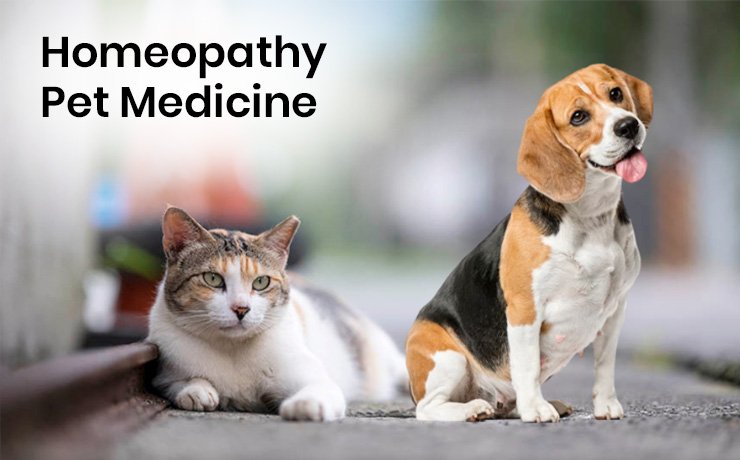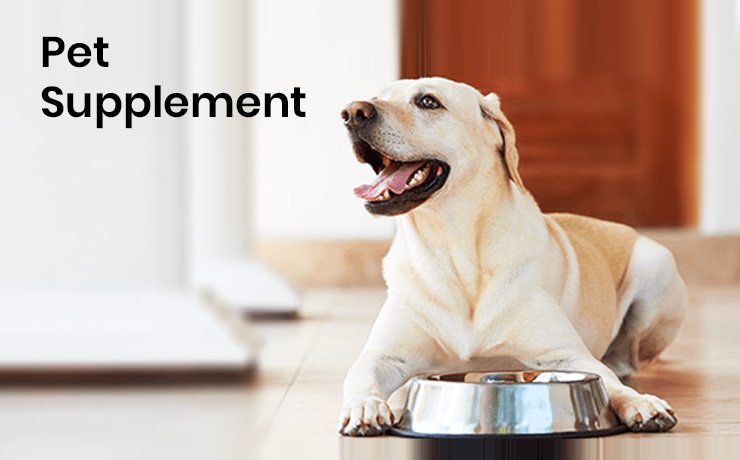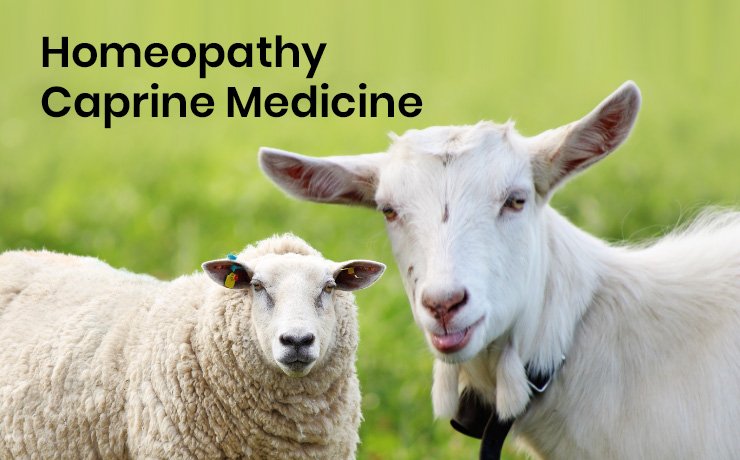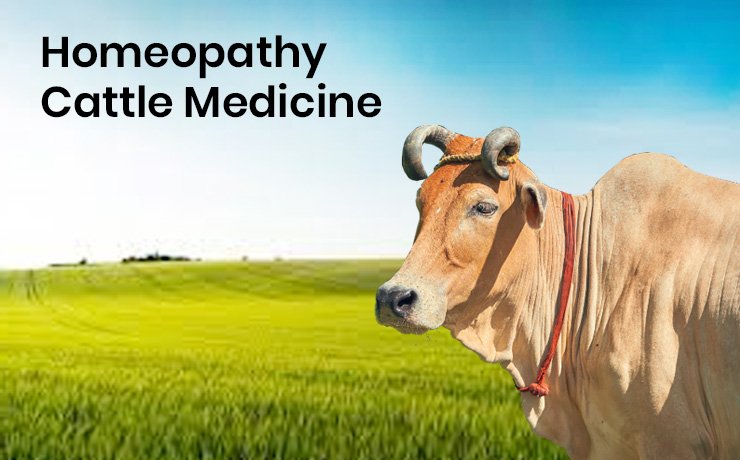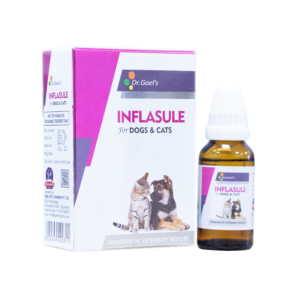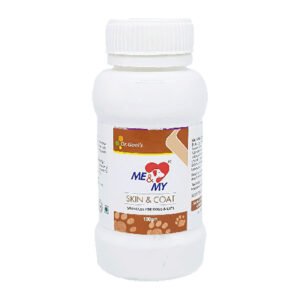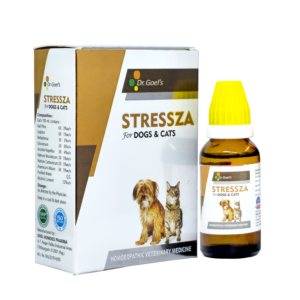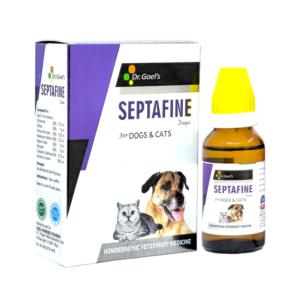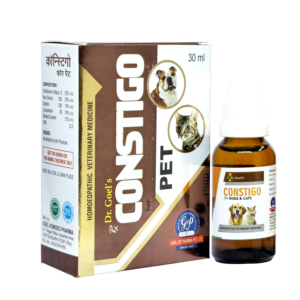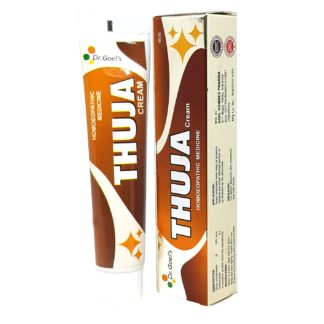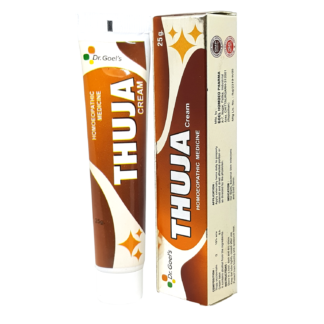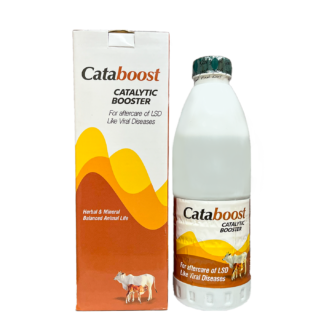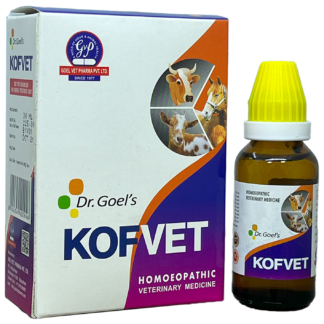Pets Diarrhea Can Be Dangerous : Homeopathy Remedy

Diarrhea in dogs is a very common condition. Most of the time, it is self-limiting, while sometimes, it becomes a serious condition, dogs become ill and require hospitalization to recover.
Dr. Bhaskar Goel, BHMS
Symptoms and Types of diarrhea in dogs:
- More water in the faeces than normal (softer or lose unformed faeces)
- An increased volume of faeces
- Shooting faeces
- Blood or mucus in the faeces. E.g.: Bloody diarrhea can be due to bacterial, viral, verminous, or any other cause.
- Tenesmus, i.e., straining to defecate
Other symptoms associated with diarrhea indicate a more severe condition like:
Vomiting, listlessness, anorexia or in appetite, depression, abdominal pain, fever, weakness, etc.
Diarrhea may result in the following ways:
Osmotic imbalance
It occurs when the concentration of food molecules in the intestine is too high. Water is drawn into the intestine by these excess molecules, causing diarrhea in dogs.
Over secretion
It occurs when the intestines secrete too much fluid after being exposed to bacteria, toxins, or parasites.
Intestinal exudation
It is described as a slow oozing of blood fluids through ulcers or other cuts in the intestinal tissue layers. This exudation can be mild or very severe.
Motility disorders
It refers to the condition where active bowel movements get inhibited due to some reason. The capability of the intestines to process the ingested food through the peristalsis movements goes wrong. The contraction of the intestinal muscles, which facilitate the movement of food for better digestion, is known as peristalsis. This can be in both ways, either decreased motility or increased motility. In both cases, it may affect the health of the dog.
The following factors can be a cause of diarrhea in dogs:
- Systemic illness: eating garbage or spoiled food, inanimate objects consumption, sudden changes in the diet, etc.
- Drugs and toxins: ingesting foreign bodies (non-food items), intestinal blockage
- Viral or bacterial or parasitic infestation, pancreatitis, hypersensitive digestive tract, etc.
- Stress results in diseases like Rickettsia (tick-transmitted disease), Fungal diseases, Addison’s disease, liver diseases, etc.
- Kidney disease
Diagnosis of acute and chronic diarrhea in Dogs
A veterinarian should perform a complete physical examination of the dog, including a background history of symptoms and possible incidents that might have led to this condition. A faecal sample should be collected and examined for parasitic infestation. A blood chemical profile, a complete blood count, an electrolyte panel, and a urinalysis have to be performed to rule out other causes of the disease. X-rays can help to rule out the possibility of the dog swallowing any inappropriate items, which might be blocking or irritating the intestine. In severe cases, an ultrasound can be very useful in diagnosing intestinal obstructions, peristalsis, hypermotility, and pancreatitis. Chronic diarrhea may require different tests, including cobalamin and folate (vitamins) levels, lipase, and other markers of intestinal functionality. Chronic diarrhea is treated and managed differently than acute diarrhea.
Treatment of Acute Diarrhoea in Dogs
If the dog shows only mild symptoms, it can be treated as an outpatient, but patients with severe dehydration and vomiting should be hospitalized for fluid and electrolyte therapy. Dehydration can be fatal if the dog is not treated for diarrhea immediately. If the diarrhea is mild, but the dog has any other signs of illness, hospitalization is a must. For those pets with a mild illnesses, home care includes rest, oral medication, and a blended diet of boiled chicken and white rice. Suggesting thorough rehydration of the pet at home before the discharge is important. Patients with an obstruction or foreign bodies may require surgery to evaluate the intestine and remove the foreign object. Timely deworming of pets should be the concern of pet owners to avoid diarrhea for verminous reasons.
Homeopathic Veterinary Medicine for Diarrhoea in Dogs
DIASULE for pets is a unique Homeopathic Veterinary Medicine, proved to be effective in treating different types of diarrhea in dogs & cats. Diarrhea of any underlying cause like bacterial, viral, or verminous can be treated by DIASULE. Even bloody diarrhea in PARVO viral infection can be improved.

Homeopathic remedies work on the principle of “similia similibuscuranter,” which means “like cures like,” and so is DIASULE. Hence, such formulations that cause symptoms like a diseased animal in a healthy one are used to prepare this wonder drug formula to be able to treat diarrhea for varied reasons.

 Australian Shepherd
Australian Shepherd Beagle
Beagle Belgium Shepherd
Belgium Shepherd Bernese Mountain Dog
Bernese Mountain Dog Border Collie
Border Collie Boxer
Boxer Bulldog
Bulldog Cavalier King Charles Spaniel
Cavalier King Charles Spaniel Chihuahua
Chihuahua Cocker Spaniel
Cocker Spaniel Dachshund
Dachshund Doberman Pinscher
Doberman Pinscher Dogo Argentino
Dogo Argentino French Bulldog
French Bulldog German Shepherd
German Shepherd Golden Retriever
Golden Retriever Great Dane
Great Dane Himalayan Shepherd
Himalayan Shepherd Indie Dogs
Indie Dogs Labrador Retriever
Labrador Retriever Pakistani Bully
Pakistani Bully Pembroke Welsh Corgi
Pembroke Welsh Corgi Pitbull
Pitbull Pomeranian
Pomeranian Poodle
Poodle Pug
Pug Rottweiler
Rottweiler Shih Tzu
Shih Tzu Siberian Husky
Siberian Husky Yorkshire Terrier
Yorkshire Terrier Abyssinian
Abyssinian American Bobtail
American Bobtail American Shorthair
American Shorthair Balinese Cat
Balinese Cat Bengal Cat
Bengal Cat Birman
Birman Bombay Cat
Bombay Cat British Longhair
British Longhair British Shorthair
British Shorthair Burmese Cat
Burmese Cat Devon Rex
Devon Rex Exotic Shorthair
Exotic Shorthair Himalayan Cat
Himalayan Cat Maine Coon
Maine Coon Oriental Shorthair
Oriental Shorthair Persian Cats
Persian Cats Ragdoll
Ragdoll Scottish Fold
Scottish Fold Siamese Cat
Siamese Cat Siberian Cat
Siberian Cat Sphynx Cat
Sphynx Cat



















